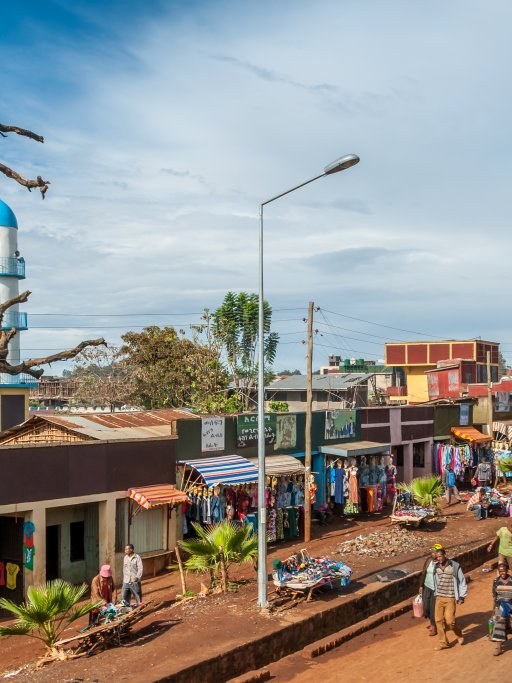The Global Water Operators' Partnerships Alliance (GWOPA)/UN- Habitat entered into an agreement with UNICEF Ethiopia aimed at the capacity development for enhanced water services delivery of three selected town water utilities of Ethiopia through the Water Operators Partnership (WOPs) Model.
Background
GWOPA and UNICEF have been engaged in several WOP projects in Africa and UNICEF Ethiopia had been keen on testing the WOP model to enhance the capacity of Ethiopian utilities.
GWOPA/UN-Habitat was granted funding from UNICEF Ethiopia to support three small urban centers in Ethiopia in which water operators were just newly created. The need for capacity building is very acute in the three cities of Bule, Bidre and Doyo Gena.
Hence, the initiative aims at enabling the implementation of three Water Operators’ Partnerships in order to help these operators establish full operational capacity to implement their mandates.
Implementation
In order to improve performance of the utilities in different working areas, one international mentor National Water & Sewerage Corporation (NWSC) Uganda and two local mentors Ambo Water Supply and Sewerage Enterprise and Wolaita Sodo Water Supply and Sewerage Enterprise, one from each region were selected.
After a six months long planning and preparation phase, the implementation phase kick started with the GWOPA Secretariat hosting a Kick Off Workshop on WOPs followed by a preparatory meeting with all the mentors to finalize the work plan for the next 2 years.
The UNICEF WASH team, alongside NWSC Uganda and local mentors, conducted a two-week diagnostic mission in three towns with their Regional Water Bureaus (RWBs) and Town Administrations.
In March 2023, mentees and mentors visited National Water and Sewerage Corporation in Kampala, Uganda, joined by other Ethiopian utility staff sponsored by UNICEF Ethiopia. The diagnosis process led to the design of Short-Term Action Plans (STAPs) for the mentees, focusing on key areas.
Later, a three-day workshop developed performance improvement strategies, an M&E framework, and a project budget. Key areas identified for improvement included financial management, operation and maintenance, billing efficiency, and asset management, resulting in the creation of KPIs and strategies.
Way Forward
This is a first for the GWOPA Secretariat in successfully setting up a multiple mentor WOP model with one international mentor in the lead and two local mentors working along side the main mentor.
This WOP is expected to run for a duration of 3 years with an 18-month WOP implementation phase, with an extension until May 2025.
Once run successfully, this partnership could pave the way for scaling up of WOPs in the Ethiopian region along with setting a national WOP platform in the country.
